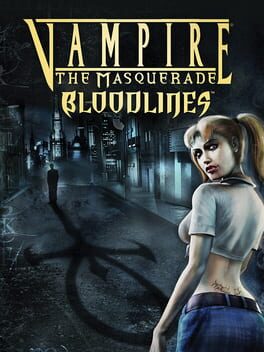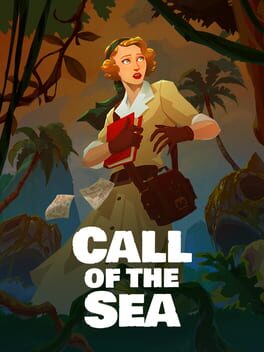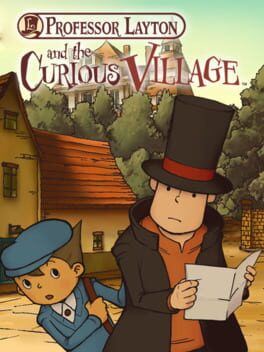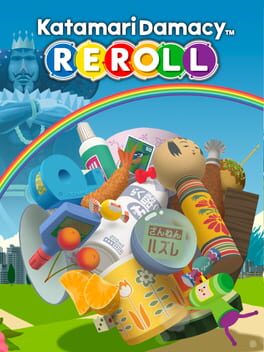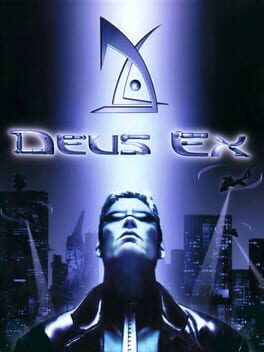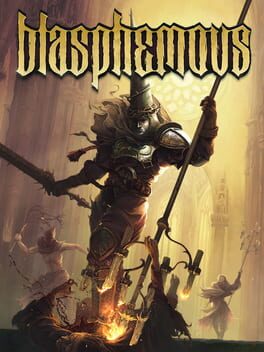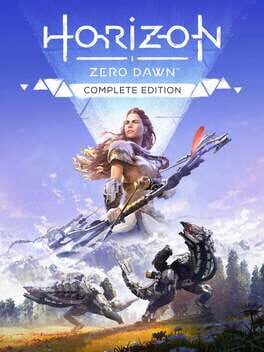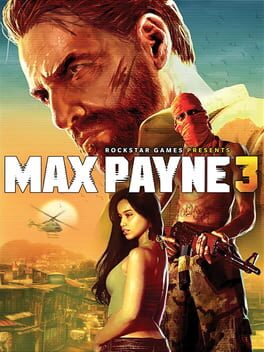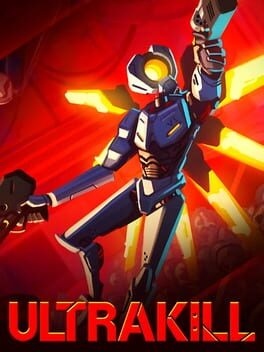emilem
Underwhelmingly mediocre, A Short Message decides to subvert your expectations by...meeting your expectations.
What made P.T. so engrossing and interesting was it's ability to keep you on your toes. It was one corridor, you could really only walk around and look at things with very bare minimum interactions. With so little, it managed to cement itself as a premium piece of psychological horror media, and it was merely a demo.
A Short Message doesn't pretend it's P.T., it's trying to be something else. The DNA of P.T. is there, it's a first person, graphically impressive short experience in the world of Silent Hill, and it has the protagonist stuck in a loop. It starts off with some interesting ideas, centred around the suicide of a young social media influencer, it taps into the toxic dynamic between young people and online engagement, craving status and the fragility of that vindication. But it's all very surface level, the game has nothing more interesting to say about it other than "Social Media Bad. Bullies Also Bad."
It instead pivots toward how the protagonist was implicit in her death somehow (because of course she is, why else would she be in a Silent Hill game) and the traumas that led her here. Which, again, wouldn't be so bad if it all wasn't incredibly surface-level. Nothing new or interesting is said here, just when you think you're about to have twist thrust upon you the game goes in the direction you'd expect it to go.
Match this with some truly awful chase sequences and you find yourself with a really middling experience. It's graphically impressive, and at times the Villa can feel really unsettling, but it never really sticks the landing. Given how long audiences have been waiting for Silent Hill to make its triumphant return, it feels like a magician putting on a grand spectacle for their buildup for about 20 minutes before pulling a rabbit out of a hat; sure, it's impressive, but we've seen it before, and did you really need all that razzle dazzle just for that?
What made P.T. so engrossing and interesting was it's ability to keep you on your toes. It was one corridor, you could really only walk around and look at things with very bare minimum interactions. With so little, it managed to cement itself as a premium piece of psychological horror media, and it was merely a demo.
A Short Message doesn't pretend it's P.T., it's trying to be something else. The DNA of P.T. is there, it's a first person, graphically impressive short experience in the world of Silent Hill, and it has the protagonist stuck in a loop. It starts off with some interesting ideas, centred around the suicide of a young social media influencer, it taps into the toxic dynamic between young people and online engagement, craving status and the fragility of that vindication. But it's all very surface level, the game has nothing more interesting to say about it other than "Social Media Bad. Bullies Also Bad."
It instead pivots toward how the protagonist was implicit in her death somehow (because of course she is, why else would she be in a Silent Hill game) and the traumas that led her here. Which, again, wouldn't be so bad if it all wasn't incredibly surface-level. Nothing new or interesting is said here, just when you think you're about to have twist thrust upon you the game goes in the direction you'd expect it to go.
Match this with some truly awful chase sequences and you find yourself with a really middling experience. It's graphically impressive, and at times the Villa can feel really unsettling, but it never really sticks the landing. Given how long audiences have been waiting for Silent Hill to make its triumphant return, it feels like a magician putting on a grand spectacle for their buildup for about 20 minutes before pulling a rabbit out of a hat; sure, it's impressive, but we've seen it before, and did you really need all that razzle dazzle just for that?
An incredibly flawed gem.
Bloodlines comes so, so close to being masterpiece, an RPG ahead of it's time, but it fumbles the ball in the final act. It starts off very strong, choices feel like they have weight, dialogue is well written and interesting, levels are designed in a way that feels like it can be approached from multiple directions.
The only things I could have initially pointed out as a criticism was that it was a little buggy (to be expected from a game on its 20th anniversary), and the combat. The combat is a little floaty and doesn't quite pack a punch, in the same way that Deus Ex's does. And that was fine, I believe it's meant to feel that way until you put more points into it.
What becomes a problem is when the entire third act is compromised almost entirely of combat. The final levels completely drop any guise of trying to be an RPG, choice disappears, level complexity vanishes, as you're forced through waves upon waves of frustrating enemies.
After three levels of this, mixed with just as many frustrating boss fights, I felt disappointed, I felt frustrated. There's so much unrealised potential here, it truly was close to being an incredibly memorable classic, but gets dampened by its finale.
Bloodlines comes so, so close to being masterpiece, an RPG ahead of it's time, but it fumbles the ball in the final act. It starts off very strong, choices feel like they have weight, dialogue is well written and interesting, levels are designed in a way that feels like it can be approached from multiple directions.
The only things I could have initially pointed out as a criticism was that it was a little buggy (to be expected from a game on its 20th anniversary), and the combat. The combat is a little floaty and doesn't quite pack a punch, in the same way that Deus Ex's does. And that was fine, I believe it's meant to feel that way until you put more points into it.
What becomes a problem is when the entire third act is compromised almost entirely of combat. The final levels completely drop any guise of trying to be an RPG, choice disappears, level complexity vanishes, as you're forced through waves upon waves of frustrating enemies.
After three levels of this, mixed with just as many frustrating boss fights, I felt disappointed, I felt frustrated. There's so much unrealised potential here, it truly was close to being an incredibly memorable classic, but gets dampened by its finale.
2020
A tight little puzzler that leaves the player wanting more, for better or worse
It's always difficult to tell how long a game should be, what feels like a "good" length. Call of the Sea I managed to beat in three sessions, probably adding up to around 5-6 hours, I got it for free on PlayStation Plus, but ultimately for it's cost at the time (~£15) I feel like I would have gotten my moneys worth.
And yet, I feel as if Call of the Sea should have more to offer. Off the top of my head, I'd guess that the game had around half a dozen proper puzzles, they're intricate sure, and unbelievably satisfying to figure out. They're truly engaging and built into the world wonderfully, and at no point did I feel they were unfair, nor did I think they were too easy, I had a "Eureka!" moment with each, which is something I admire in a puzzle game, to be able to strike that balance.
However, as mentioned, there's not many of them, and what's their is artificially expanded by climbing animations (admittedly not used frequently but they take so long that it irked me) and large maps that can feel hollow. Don't get me wrong, they're strikingly pretty (kudos to the art direction), but if you strip away the visuals, there's long stretches of nothing between puzzle elements.
In other games, you could argue these long walks give the player a chance to ruminate on the situation, to think on the story and try to piece things together, and I honestly think Call of the Sea could have pulled that off if they'd given more intrigue to the mystery, instead of holding its cards close to its chest for the most part before spelling it out for you, there's not much to ruminate on aside baseless speculation until the end.
Ultimately, Call of the Sea acts as a great novella, if a little hollow past the surface, there's not many layers to it. The puzzles are well thought out, and the story is very sweet, just lacking complexity. I feel as though it hits a funny point on the Goldilocks spectrum; it's not too short, it's not too long, but it's not just right.
It's always difficult to tell how long a game should be, what feels like a "good" length. Call of the Sea I managed to beat in three sessions, probably adding up to around 5-6 hours, I got it for free on PlayStation Plus, but ultimately for it's cost at the time (~£15) I feel like I would have gotten my moneys worth.
And yet, I feel as if Call of the Sea should have more to offer. Off the top of my head, I'd guess that the game had around half a dozen proper puzzles, they're intricate sure, and unbelievably satisfying to figure out. They're truly engaging and built into the world wonderfully, and at no point did I feel they were unfair, nor did I think they were too easy, I had a "Eureka!" moment with each, which is something I admire in a puzzle game, to be able to strike that balance.
However, as mentioned, there's not many of them, and what's their is artificially expanded by climbing animations (admittedly not used frequently but they take so long that it irked me) and large maps that can feel hollow. Don't get me wrong, they're strikingly pretty (kudos to the art direction), but if you strip away the visuals, there's long stretches of nothing between puzzle elements.
In other games, you could argue these long walks give the player a chance to ruminate on the situation, to think on the story and try to piece things together, and I honestly think Call of the Sea could have pulled that off if they'd given more intrigue to the mystery, instead of holding its cards close to its chest for the most part before spelling it out for you, there's not much to ruminate on aside baseless speculation until the end.
Ultimately, Call of the Sea acts as a great novella, if a little hollow past the surface, there's not many layers to it. The puzzles are well thought out, and the story is very sweet, just lacking complexity. I feel as though it hits a funny point on the Goldilocks spectrum; it's not too short, it's not too long, but it's not just right.
2023
Very rarely will I review a game that I haven't completed. I don't think it's fair. But I'm going to make an exception for Starfield.
This game is a testament to Bethesda's refusal to improve. A belief that they don't need to. Perhaps in a year where they've been forced to go toe-to-toe with a competent RPG in Baldur's Gate III (in fairness, not one I've played, but I think I could safely say it trumps Starfield in every capacity) they'll finally see that they can no longer rest on their laurels.
Starfield is by no means a game made incompetently, it's technically impressive, especially by Bethesda's standards. The gunplay is good, the game looks pretty, and the tech aspects are quite cool. But the story and RPG elements are severely lacking.
The game is vapid and empty, it's white noise, it's the video game equivalent of eating flour. I played for twenty hours and not once did I find anything that was remotely engaging. Nothing about the main story engaged me, the "mystery" of the artefacts was completely worthless because all it was just "weird floating rocks", at least until TEN HOURS IN when it was suddenly revealed they give force powers. That's right, in the time it takes to FULLY COMPLETE games that have FAR MORE INTERESTING THINGS TO SAY than Starfield, Starfield is only just getting round to revealing a core mechanic. And the side quests have nothing I was interested in, they just flooded by quest list as I was walking around, assuming that I was tuning in to every conversation happening around me from nameless NPCs.
Ultimately I think that's what it boils down to, Starfield ASSUMES I already care about everything that's happening in the world, and therefore does nothing to try and pull me in. It ASSUMES I care about the artefacts, so doesn't need to actually engage me in a mystery. It ASSUMES I want to join every faction, so doesn't actually tell me anything about these factions. It ASSUMES I'm going to get really invested in the base building mechanics, so never stops to tell me what the value in it is.
One day I will come back to this game, I will finish it, I will write an essay about it, there's plenty here to write about, I didn't even get started on the godforsaken ship combat. But for now, I'm not investing any time in it. For now all I can say is Bethesda need to start learning from their contemporaries and stop assuming they're the gold standard for western RPGs. I'm not sure they ever were.
This game is a testament to Bethesda's refusal to improve. A belief that they don't need to. Perhaps in a year where they've been forced to go toe-to-toe with a competent RPG in Baldur's Gate III (in fairness, not one I've played, but I think I could safely say it trumps Starfield in every capacity) they'll finally see that they can no longer rest on their laurels.
Starfield is by no means a game made incompetently, it's technically impressive, especially by Bethesda's standards. The gunplay is good, the game looks pretty, and the tech aspects are quite cool. But the story and RPG elements are severely lacking.
The game is vapid and empty, it's white noise, it's the video game equivalent of eating flour. I played for twenty hours and not once did I find anything that was remotely engaging. Nothing about the main story engaged me, the "mystery" of the artefacts was completely worthless because all it was just "weird floating rocks", at least until TEN HOURS IN when it was suddenly revealed they give force powers. That's right, in the time it takes to FULLY COMPLETE games that have FAR MORE INTERESTING THINGS TO SAY than Starfield, Starfield is only just getting round to revealing a core mechanic. And the side quests have nothing I was interested in, they just flooded by quest list as I was walking around, assuming that I was tuning in to every conversation happening around me from nameless NPCs.
Ultimately I think that's what it boils down to, Starfield ASSUMES I already care about everything that's happening in the world, and therefore does nothing to try and pull me in. It ASSUMES I care about the artefacts, so doesn't need to actually engage me in a mystery. It ASSUMES I want to join every faction, so doesn't actually tell me anything about these factions. It ASSUMES I'm going to get really invested in the base building mechanics, so never stops to tell me what the value in it is.
One day I will come back to this game, I will finish it, I will write an essay about it, there's plenty here to write about, I didn't even get started on the godforsaken ship combat. But for now, I'm not investing any time in it. For now all I can say is Bethesda need to start learning from their contemporaries and stop assuming they're the gold standard for western RPGs. I'm not sure they ever were.
The Curious Village is a wonderfully fun little puzzle romp.
It's difficult to rate it fairly I think, because I played it many years ago and had a vague rememberance of how the mystery ended that kind of ruins a lot of the stories pacing for me. Granted, it allowed me an appreciation for how the game planted seeds throughout, but I still feel it'll be a little unfair to judge considering the story is the main attraction here.
Obviously it's a puzzle game, but the puzzles are 90% of the time unrelated to the story, often being random minigames thrown at you by the villagers (which is given a fun narrative reason toward the end that I don't suppose will be given in sequels). That's not to say the puzzles aren't fun per se, but the driving force for completing them is to unravel the story.
It's a fun mystery, with great characters, and some truly gorgeous cutscenes when the game decides to utilise them.
It's difficult to rate it fairly I think, because I played it many years ago and had a vague rememberance of how the mystery ended that kind of ruins a lot of the stories pacing for me. Granted, it allowed me an appreciation for how the game planted seeds throughout, but I still feel it'll be a little unfair to judge considering the story is the main attraction here.
Obviously it's a puzzle game, but the puzzles are 90% of the time unrelated to the story, often being random minigames thrown at you by the villagers (which is given a fun narrative reason toward the end that I don't suppose will be given in sequels). That's not to say the puzzles aren't fun per se, but the driving force for completing them is to unravel the story.
It's a fun mystery, with great characters, and some truly gorgeous cutscenes when the game decides to utilise them.
A short but incredibly fun experience, there's not many games out there like Katamari Damacy
It's interesting to consider that it's really in a league of it's own without many taking inspiration from it, the only thing really springing to mind currently being Donut County. What's also impressive is how little Katamari has aged, it's charming minimalist aesthetics and controls are just as solid as when they launched. Sure, Re-rolls HD-ification of it helps but in terms of visuals alone it's endlessly charming.
It's short, yes, able to be completed in about 4-5 hours if you just want to rush through, and only offers a handful of levels (albeit expanding each time you play), but it hits a sweet spot where it doesn't overstay it's welcome with the contents that it has. Don't get me wrong, I feel there's potential for a lot more (potential that most likely is explored in it's sequels), but I had a wonderful time with what's there.
The controls are good, the physics can get a little funky at times, but in a game where almost every asset can be absorbed into a cataclysmic snowball I think it can be excused for the few times the Katamari gets stuck or clips through the world.
It's interesting to consider that it's really in a league of it's own without many taking inspiration from it, the only thing really springing to mind currently being Donut County. What's also impressive is how little Katamari has aged, it's charming minimalist aesthetics and controls are just as solid as when they launched. Sure, Re-rolls HD-ification of it helps but in terms of visuals alone it's endlessly charming.
It's short, yes, able to be completed in about 4-5 hours if you just want to rush through, and only offers a handful of levels (albeit expanding each time you play), but it hits a sweet spot where it doesn't overstay it's welcome with the contents that it has. Don't get me wrong, I feel there's potential for a lot more (potential that most likely is explored in it's sequels), but I had a wonderful time with what's there.
The controls are good, the physics can get a little funky at times, but in a game where almost every asset can be absorbed into a cataclysmic snowball I think it can be excused for the few times the Katamari gets stuck or clips through the world.
2000
A classic that's showing it's age, if only because it laid the ground works for a new genre.
Deus Ex is undeniably a project worth celebrating, it allows the player a tremendous amount of agency and rewards them for playing smart. At any given moment I felt curious enough to look around, explore the environment and try and find new ways to tackle a task.
However, I never felt encouraged to, the world is incredibly sparse and the design isn't tight, it can guide you to things but it's more a case of luck or stumbling onto something rather than it feeling like being taken on a route. I don't necessarily have a problem with this kind of design, but it can feel frustrating at some points.
I can't knock Deus Ex too hard on this, it's really the first of its kind and I'm accustomed now to games like Dishonored and even Deus Ex's modern iterations improving on this formula. For example, the game gives you a lot of lethal, non-lethal, loud or silent options to take on enemies, yet they never really feel like it makes a difference what you do to get to the end as long as you get to the end. Again, not so much a problem, I like that the options are there, but it would be nice to feel the weight of these choices in some scenarios.
Ultimately, Deus Ex holds up as a classic, one I'm sure I'll revisit many, many times.
Deus Ex is undeniably a project worth celebrating, it allows the player a tremendous amount of agency and rewards them for playing smart. At any given moment I felt curious enough to look around, explore the environment and try and find new ways to tackle a task.
However, I never felt encouraged to, the world is incredibly sparse and the design isn't tight, it can guide you to things but it's more a case of luck or stumbling onto something rather than it feeling like being taken on a route. I don't necessarily have a problem with this kind of design, but it can feel frustrating at some points.
I can't knock Deus Ex too hard on this, it's really the first of its kind and I'm accustomed now to games like Dishonored and even Deus Ex's modern iterations improving on this formula. For example, the game gives you a lot of lethal, non-lethal, loud or silent options to take on enemies, yet they never really feel like it makes a difference what you do to get to the end as long as you get to the end. Again, not so much a problem, I like that the options are there, but it would be nice to feel the weight of these choices in some scenarios.
Ultimately, Deus Ex holds up as a classic, one I'm sure I'll revisit many, many times.
2019
I'm not one who takes to Souls-like games very often, and yet I couldn't stop playing Blasphemous.
Sure, it suffers from typically Souls-like tropes, namely with it's painful vagueness in it's prose which can be legitimately frustrating if you want to get the "best" ending (something that gets locked off if you don't do specific things before one of the bosses). But in terms of gameplay, Blasphemous is incredible.
It's tight, responsive, and oh-so-satisfying. Unlocking new abilities is exciting and discovering places to upgrade Mea Culpa or your health genuinely made me gasp with delight. Exploring the world is fun and sufficiently rewards the player. Everything about it's map, enemies, and controls is done so well that I couldn't put the game down.
And I believe that it's handling death punishments is probably the best I've seen in this genre. It doesn't take away your Tears (this games equivalent of souls) upon death, instead capping your prayer gauge (another feature that is just genuinely very cool). This is incredibly smart, one of the more frustrating things about Souls games is death can be a major loss of progress if you're carrying a lot of souls. Here, death is a chance for you to level up, take the Tears you've gathered up until the point you died, get stronger, and try again.
This means that, even with the games difficulty, you always feel like you're making progress, you never feel stuck and it never gets frustrating, death isn't nearly as nerve wracking as it was and that's a good thing, it allows you to enter fights a little more fearlessly and really take some risks during Combat that you might not do if hours worth of progress was on the line.
On top of all of this, aesthetically Blasphemous is stunning, it's Spanish Gothic architecture is intricately detailed and simply wonderful to look at, character and boss designs are endlessly memorable, and the soundtrack is incredible at setting the tone for it's many variations of areas, and there are many.
Even if you haven't stuck to Souls games before, give Blasphemous a go, it seems to do almost everything right.
Sorrowful be the heart, Penitent One.
Sure, it suffers from typically Souls-like tropes, namely with it's painful vagueness in it's prose which can be legitimately frustrating if you want to get the "best" ending (something that gets locked off if you don't do specific things before one of the bosses). But in terms of gameplay, Blasphemous is incredible.
It's tight, responsive, and oh-so-satisfying. Unlocking new abilities is exciting and discovering places to upgrade Mea Culpa or your health genuinely made me gasp with delight. Exploring the world is fun and sufficiently rewards the player. Everything about it's map, enemies, and controls is done so well that I couldn't put the game down.
And I believe that it's handling death punishments is probably the best I've seen in this genre. It doesn't take away your Tears (this games equivalent of souls) upon death, instead capping your prayer gauge (another feature that is just genuinely very cool). This is incredibly smart, one of the more frustrating things about Souls games is death can be a major loss of progress if you're carrying a lot of souls. Here, death is a chance for you to level up, take the Tears you've gathered up until the point you died, get stronger, and try again.
This means that, even with the games difficulty, you always feel like you're making progress, you never feel stuck and it never gets frustrating, death isn't nearly as nerve wracking as it was and that's a good thing, it allows you to enter fights a little more fearlessly and really take some risks during Combat that you might not do if hours worth of progress was on the line.
On top of all of this, aesthetically Blasphemous is stunning, it's Spanish Gothic architecture is intricately detailed and simply wonderful to look at, character and boss designs are endlessly memorable, and the soundtrack is incredible at setting the tone for it's many variations of areas, and there are many.
Even if you haven't stuck to Souls games before, give Blasphemous a go, it seems to do almost everything right.
Sorrowful be the heart, Penitent One.
2023
Hi Fi Rush is a wonderful piece of art.
There's the time-old argument as to what's the most important thing in a video game, is it the graphics? The performance? The gameplay? The truth is, it's the experience. Experience is king. It's a combination of all these parts to make the player the star of the show and make them know it. Hi-Fi Rush pushes you under the spot light in the absolute best way possible.
Maybe I'm biased, "rhythm hack-n-slash with comic graphics and a goofy cast" feels as if it was made for me personally, but this game is just so incredibly well executed that I can't help but want to recommend it to everyone. The gameplay, the music, the cast, the writing, the levels, everything is just immaculate.
My only major gripe is that sometimes during the fights it can get a little too crowded, and there's maybe too many spinning plated without sufficient warning of oncoming attacks/low health. But ultimately its a gripe I got used to with time.
No other game has made me grin ear-to-ear like an idiot while a boss kicks the shit out of me, purely because I'm wrapped up in the spectacle of it. I so desperately hope that this isn't the last we see of Chai and the gang.
There's the time-old argument as to what's the most important thing in a video game, is it the graphics? The performance? The gameplay? The truth is, it's the experience. Experience is king. It's a combination of all these parts to make the player the star of the show and make them know it. Hi-Fi Rush pushes you under the spot light in the absolute best way possible.
Maybe I'm biased, "rhythm hack-n-slash with comic graphics and a goofy cast" feels as if it was made for me personally, but this game is just so incredibly well executed that I can't help but want to recommend it to everyone. The gameplay, the music, the cast, the writing, the levels, everything is just immaculate.
My only major gripe is that sometimes during the fights it can get a little too crowded, and there's maybe too many spinning plated without sufficient warning of oncoming attacks/low health. But ultimately its a gripe I got used to with time.
No other game has made me grin ear-to-ear like an idiot while a boss kicks the shit out of me, purely because I'm wrapped up in the spectacle of it. I so desperately hope that this isn't the last we see of Chai and the gang.
An impeccable story trapped in a modern open world game.
Zero Dawn hooks you on it's main story from the get go, the mystery of Aloy's heritage has intricate twists and turns that culminate in a beautiful story about the persistence of human nature, and how simply the care of one person can take so many so far. I wish that I could gush about the rest of this game like I could the narrative, but it suffers from so many problems that can be found in tons of other modern open world games that, toward the end, I just wanted to play the main story and ignored most everything else.
First off, the world itself. It's beautiful, the environment team did a spectacular job of bringing the landscapes to life, it is a crying shame that the design doesn't encourage exploration whatsoever. EVERY LITTLE THING has a big, obnoxious marker on it that you can't turn off, which meant most of the time I wasn't paying much attention to the world around me and instead just kept following markers. Which is infuriating, because the world is BEGGING to be explored, and yet the mood only took me once or twice.
Case in point, there's a part in the story where you're meant to rendezvous with a contact, you find them dead, and they have drawn a map in their blood to where you need to go, in their dying moments. "Oh cool!" I thought, expectations suddenly rising "A puzzle! I need to decipher the map and figure out where to-" and then the cutscene ended, and a big, obnoxious marker popped up on screen, always there, always demanding my attention, always telling me where to go.
Now, this isn't entirely Zero Dawn's fault, these quest markers are a plague on the modern AAA gaming space, but what frustrates me is Horizon is SO CLOSE to being such an incredible, perfect game but it so frequently succumbs to these dull design decisions that it doesn't stick the landing. Side quests are dull and result in "go here, scan thing, talk to person, fight machine" ad infinitum, so I just stopped doing them. Gathering resources in the world is pointless because most shops will just sell them to you and you amass currency so fast that you might as well just fast travel to a merchant rather than go out and gather the things you need.
With just a few changes to its core design, even optionally (no quest markers, limited merchant stock, harsher resource restrictions) then Horizon could really encourage you to explore its world and get engrossed in it. And you should! Fighting machines out in the wild is SO immensely fun, so much thought has been put into each enemy and taking on any of them feels so good, in between fluid, well designed enemies and Aloy's razor-sharp control.
Horizon Zero Dawn is worth your time for the story alone, but it could have been so, so much more.
Zero Dawn hooks you on it's main story from the get go, the mystery of Aloy's heritage has intricate twists and turns that culminate in a beautiful story about the persistence of human nature, and how simply the care of one person can take so many so far. I wish that I could gush about the rest of this game like I could the narrative, but it suffers from so many problems that can be found in tons of other modern open world games that, toward the end, I just wanted to play the main story and ignored most everything else.
First off, the world itself. It's beautiful, the environment team did a spectacular job of bringing the landscapes to life, it is a crying shame that the design doesn't encourage exploration whatsoever. EVERY LITTLE THING has a big, obnoxious marker on it that you can't turn off, which meant most of the time I wasn't paying much attention to the world around me and instead just kept following markers. Which is infuriating, because the world is BEGGING to be explored, and yet the mood only took me once or twice.
Case in point, there's a part in the story where you're meant to rendezvous with a contact, you find them dead, and they have drawn a map in their blood to where you need to go, in their dying moments. "Oh cool!" I thought, expectations suddenly rising "A puzzle! I need to decipher the map and figure out where to-" and then the cutscene ended, and a big, obnoxious marker popped up on screen, always there, always demanding my attention, always telling me where to go.
Now, this isn't entirely Zero Dawn's fault, these quest markers are a plague on the modern AAA gaming space, but what frustrates me is Horizon is SO CLOSE to being such an incredible, perfect game but it so frequently succumbs to these dull design decisions that it doesn't stick the landing. Side quests are dull and result in "go here, scan thing, talk to person, fight machine" ad infinitum, so I just stopped doing them. Gathering resources in the world is pointless because most shops will just sell them to you and you amass currency so fast that you might as well just fast travel to a merchant rather than go out and gather the things you need.
With just a few changes to its core design, even optionally (no quest markers, limited merchant stock, harsher resource restrictions) then Horizon could really encourage you to explore its world and get engrossed in it. And you should! Fighting machines out in the wild is SO immensely fun, so much thought has been put into each enemy and taking on any of them feels so good, in between fluid, well designed enemies and Aloy's razor-sharp control.
Horizon Zero Dawn is worth your time for the story alone, but it could have been so, so much more.
2022
What a truly wonderful game Pentiment is.
It's nice to see companies like Obsidian willing to hedge their bets on a game so truly niche, what other companies would look at as something "difficult to market". Sure, it has Josh Sawyer at the helm, which allows people to claim it's "by the mind behind Fallout: New Vegas", but even still its truly inspiring to see something like this come out from a big studio.
And what a fine choice they made, Pentiment is a deeply intricate, well written narrative adventure that made me regret not paying more attention in GCSE history. Its knowledge of 16th century Europe is fascinating, but if the pages upon pages worth of history on Monastic Scriptures don't hook you (which, frankly, it should) the story it tells is one to behold.
It's a murder mystery, that tells an enthralling tale over three points in time, towards the end I had prepared myself for a vague sort of ending, where interpretation is left to the viewer, and yet I was pleasantly surprised by an exceptionally neat bow tied around the story, with a fantastic message about our place in history and the impact we have on our futures to boot.
The controls are a little janky, and the prose can get a little heavy, but this is more than made up for with its benchmark writing and stunning art.
It's nice to see companies like Obsidian willing to hedge their bets on a game so truly niche, what other companies would look at as something "difficult to market". Sure, it has Josh Sawyer at the helm, which allows people to claim it's "by the mind behind Fallout: New Vegas", but even still its truly inspiring to see something like this come out from a big studio.
And what a fine choice they made, Pentiment is a deeply intricate, well written narrative adventure that made me regret not paying more attention in GCSE history. Its knowledge of 16th century Europe is fascinating, but if the pages upon pages worth of history on Monastic Scriptures don't hook you (which, frankly, it should) the story it tells is one to behold.
It's a murder mystery, that tells an enthralling tale over three points in time, towards the end I had prepared myself for a vague sort of ending, where interpretation is left to the viewer, and yet I was pleasantly surprised by an exceptionally neat bow tied around the story, with a fantastic message about our place in history and the impact we have on our futures to boot.
The controls are a little janky, and the prose can get a little heavy, but this is more than made up for with its benchmark writing and stunning art.
2012
Max Payne 3 is criminally underrated.
Sure, the story probably doesn't kick quite as much as the other two, it rehashes old story beats gone over in The Fall of Max Payne. He's grappling with having to overcome his dead family yet again. However that doesn't mean it's not still a good story in of itself, it's engaging, has plenty of twists and turns, and has a lot of satisfying beats.
But that's not why it's underrated, it's underrated because it is one of the most satisfying and well constructed third person shooters out there. Max is a joy to control, fight scenes are excellently choreographed because of how Max stumbles around the battlefield wielding whatever guns he can get his hands on, which makes most gun fights look like they jump straight out of the John Woo movies that originally inspired Max's creation at Remedy.
The limited arsenal means that you're constantly switching through guns, you might have your favourites but they won't always be there, so you're always keeping an eye out for what your enemies are using and if you can nab anything off their corpses when you're done filling them with bullets.
Levels are distinct and memorable, setting the game in Sao Paulo with flashbacks to NYC means you have a cavalcade of set pieces to explore, with moments like the Airport being some of the most memorable in gaming history (go listen to TEARS by HEALTH now)
Max Payne 3 doesn't get the respect it deserves, it might not be as narratively impressive as its predecessors, but its gameplay is well worth your time.
Like
Sure, the story probably doesn't kick quite as much as the other two, it rehashes old story beats gone over in The Fall of Max Payne. He's grappling with having to overcome his dead family yet again. However that doesn't mean it's not still a good story in of itself, it's engaging, has plenty of twists and turns, and has a lot of satisfying beats.
But that's not why it's underrated, it's underrated because it is one of the most satisfying and well constructed third person shooters out there. Max is a joy to control, fight scenes are excellently choreographed because of how Max stumbles around the battlefield wielding whatever guns he can get his hands on, which makes most gun fights look like they jump straight out of the John Woo movies that originally inspired Max's creation at Remedy.
The limited arsenal means that you're constantly switching through guns, you might have your favourites but they won't always be there, so you're always keeping an eye out for what your enemies are using and if you can nab anything off their corpses when you're done filling them with bullets.
Levels are distinct and memorable, setting the game in Sao Paulo with flashbacks to NYC means you have a cavalcade of set pieces to explore, with moments like the Airport being some of the most memorable in gaming history (go listen to TEARS by HEALTH now)
Max Payne 3 doesn't get the respect it deserves, it might not be as narratively impressive as its predecessors, but its gameplay is well worth your time.
Like
2020
Despite it only being in early access, ULTRAKILL is one of those rare perfect games.
It's a game that forces you to get absorbed in it. It doesn't mess around, it's fast and expects you to catch up. And when you do it comes as natural as breathing.
The controls are flawless, just watch somebody play and you might be tricked into thinking that it's beyond you, but everything comes so naturally that you'll find yourself pulling off shots you didn't even realise you were capable of, I don't know if it's the music, the design, or just how the guns feel, but something about ULTRAKILL just feels like second nature when you get to grips with it.
Speaking of, the music is absolutely brutal in the best ways, incorporating high intensity breakcore to really get your blood pumping and move with it.
I have no critique on ULTRAKILL, I hope the rest of the content that comes to ULTRAKILL is more ULTRAKILL. Enjoy ULTRAKILL.
It's a game that forces you to get absorbed in it. It doesn't mess around, it's fast and expects you to catch up. And when you do it comes as natural as breathing.
The controls are flawless, just watch somebody play and you might be tricked into thinking that it's beyond you, but everything comes so naturally that you'll find yourself pulling off shots you didn't even realise you were capable of, I don't know if it's the music, the design, or just how the guns feel, but something about ULTRAKILL just feels like second nature when you get to grips with it.
Speaking of, the music is absolutely brutal in the best ways, incorporating high intensity breakcore to really get your blood pumping and move with it.
I have no critique on ULTRAKILL, I hope the rest of the content that comes to ULTRAKILL is more ULTRAKILL. Enjoy ULTRAKILL.
Disco Elysium is one of the best narrative games I have ever played.
It's a game that I struggle finding faults with, only minor ones that, in the grand scheme of things, really don't matter. It's movement is a little clunky, and the UI is difficult to navigate on console, minor gripes. The biggest issue I immediately had with it I quickly got over. I initially had an issue with the ending, and the resolution to the mystery, but it was when I realised that the result wasn't the important aspect, rather the intricate stories of everyone involved, I overcame my upset.
This game is fantastic, it's written excellently, the voice acting is superb, it's funny, it's dramatic, it's heartbreaking and it's intriguing. I can't really do much else aside sing it's praises and tell you how much I love Kim Kitsuragi. Play Disco Elysium.
It's a game that I struggle finding faults with, only minor ones that, in the grand scheme of things, really don't matter. It's movement is a little clunky, and the UI is difficult to navigate on console, minor gripes. The biggest issue I immediately had with it I quickly got over. I initially had an issue with the ending, and the resolution to the mystery, but it was when I realised that the result wasn't the important aspect, rather the intricate stories of everyone involved, I overcame my upset.
This game is fantastic, it's written excellently, the voice acting is superb, it's funny, it's dramatic, it's heartbreaking and it's intriguing. I can't really do much else aside sing it's praises and tell you how much I love Kim Kitsuragi. Play Disco Elysium.

